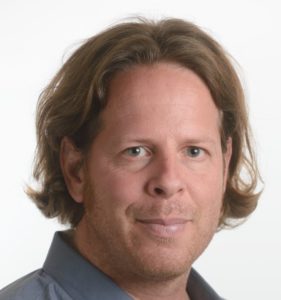
BGU Develops Better Drug to Treat Osteoporosis
BGU Develops Better Drug to Treat Osteoporosis
September 12, 2018
Medical Research, Press Releases
A natural protein in the body can be tailored to function as a multi-targeting drug to treat osteoporosis, a disease in which the bones become brittle and fragile, according to a new study by Ben-Gurion University of the Negev (BGU) researchers.
The researchers reveal in the scientific journal, PLOS Biology, that by targeting two cell receptors simultaneously, the engineered proteins may provide relief for osteoporosis patients with fewer adverse side effects than current treatments.
According to the International Osteoperosis Foundation, 44 million people in the United States have either osteoporosis or low bone mass, which represents 55 percent of people aged 50 and older.
“Osteoporosis is caused by a disturbance of the normal balance between the production of new bone tissue and the breakdown of old tissue by bone-removing cells, known as osteoclasts,” says Dr. Noam Levaot of the BGU Department of Physiology and Cell Biology.
Current drugs for osteoporosis work by completely shutting off this breakdown, known as bone absorption, for an uncontrolled duration. This increases the risk for adverse side effects, such as low blood calcium, atypical fractures and destruction of the jaw bone.
“These problems limit the use of currently available drugs and lead to poor patient compliance,” Dr. Levaot says. “Despite the progress in treatment of patients with osteoporosis, there remains a significant demand for safer and more specific osteoporosis drugs with a prolonged biological effect.”
This new drug is based on a natural human protein that has been modified to inhibit the bone destruction activity of osteoclasts by simultaneously targeting two receptors (communication sites) present on these cells. They showed that in an animal model for osteoporosis the drug is very specific to osteoclasts and can effectively prevent bone absorption.
“We believe that such modified proteins could provide the next generation of therapeutics with targeted activities and fewer adverse side effects. We are also confident that such modified protein compounds could also work on other bone diseases and certain types of cancer, particularly metastatic bone cancer,” says co-researcher Dr. Niv Papo of the BGU Department of Biotechnology Engineering and the National Institute for Biotechnology in the Negev. Ph.D. student Yuval Zur also participated in the study.
ABOUT AMERICANS FOR BEN-GURION UNIVERSITY
By supporting a world-class academic institution that not only nurtures the Negev, but also shares its expertise locally and globally, Americans for Ben-Gurion University engages a community of Americans who are committed to improving the world. David Ben-Gurion envisioned that Israel’s future would be forged in the Negev. The cutting-edge research carried out at Ben-Gurion University drives that vision by sustaining a desert Silicon Valley, with the “Stanford of the Negev” at its center. The Americans for Ben-Gurion University movement supports a 21st century unifying vision for Israel by rallying around BGU’s remarkable work and role as an apolitical beacon of light in the Negev desert.
About Ben-Gurion University of the Negev
Ben-Gurion University of the Negev embraces the endless potential we have as individuals and as a commonality to adapt and to thrive in changing environments. Inspired by our location in the desert, we aim to discover, to create, and to develop solutions to dynamic challenges, to pose questions that have yet to be asked, and to push beyond the boundaries of the commonly accepted and possible.
We are proud to be a central force for inclusion, diversity and innovation in Israel, and we strive to extend the Negev’s potential and our entrepreneurial spirit throughout the world. For example, the multi-disciplinary School for Sustainability and Climate Change at BGU leverages over 50 years of expertise on living and thriving in the desert into scalable solutions for people everywhere.
BGU at a glance:
20,000 students | 800 senior faculty | 3 campuses | 6 faculties: humanities & social sciences, health sciences, engineering sciences, natural sciences, business & management, and desert research.
For all press inquiries, please contact:
James Fattal, J Cubed Communications
516.289.1496




